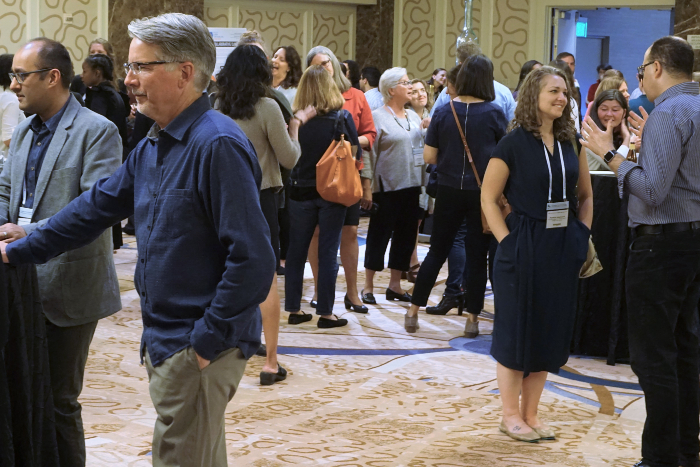The AALS Conference on Clinical Legal Education will be held in San Francisco this spring, from April 27-30. The conference and preceding Clinical and Experiential Law Program Directors Workshop will be entirely in person for the first time since 2019.
This year’s conference theme is “Hope as a Discipline.” While clinical faculty have been away from each other, we have witnessed continued rising authoritarianism, popular nationalism, deepening inequities, and retrenchments of rights, around the world and in the United States. Our students, colleagues, neighbors, and we ourselves question the ability of established institutions to protect democracy, ensure the survival of the planet, and secure human and civil rights for all people. Working with students in clinics and externships to assist underserved populations resolve their legal problems, we have always been aware of the ways in which law is socially constructed to create racial inequality and various forms of subordination.
Despite these challenges, this conference is focused on hope and action rather than fear and despair. How can we use this moment as an opportunity to move our world forward in a transformative way? This theme is inspired by the work of activist, educator, and abolitionist Mariame Kaba. For generations, the work of abolitionists like Kaba – from Harriet Tubman, Frederick Douglass, and W.E.B. Du Bois to Angela Davis and Derecka Purnell – teaches us that current times counsel against despair, and in favor of hope and radical action, both in the carceral context and in all other areas of our social and racial justice work.
Using abolition as a frame for our work requires holding two visions at once: first, of tearing down instruments of control; but also, in the words of historian Robin D.G. Kelley, radically imagining what might be built instead. Lawyering with an eye toward this second vision can guide us to help create a world in which all people experience a clean environment, safe housing, food security, quality healthcare, meaningful education, and a living wage, and are not subject to family violence, unjust fines and fees, or imprisonment. And the times, we suggest, require us not only to deepen our commitment to these pursuits, but to be more radical and hopeful in our vision of what is possible through our students’ and our own work.
As clinical faculty we understand the limits of the law and take seriously our obligation to train the next generation of lawyers differently. We can teach our students how to use the discipline of hope to change the institution of law in radical and innovative ways, bridge the gaps between the streets, organizers, and law schools, and turn the injustice and outrage that exist today into fuel for the engine of progress. We can teach students how to develop this discipline in themselves and others, to create a more equitable, sustainable and humane world.
Friday, April 28, 9 am – 10:45 am
Speakers
Derecka Purnell, derecka.com Robin D.G. Kelley, history.ucla.edu/faculty/robin-d-g-kelley
Moderator
Norrinda Brown Hayat, Fordham University School of Law
During the opening plenary, Derecka Purnell (abolitionist organizer, lawyer, and writer) will be in conversation with Professor Robin D.G. Kelley (scholar, historian of social movements, and writer), moderated by Norrinda Brown Hayat (clinician and housing advocate). The conversation will prompt us to deepen our commitment to our clients’ most radical pursuits, not only in theory but in our teaching and clinical practice.
There will be one luncheon on Saturday, April 29, 12:40 pm – 2:10 pm. The Section on Clinical Legal Education M. Shanara Gilbert Award and Ellman Memorial Clinical Scholarship Award will be presented and we will honor new clinicians. CLEA Awards will also be presented.
Informal gatherings were added to conference programming in a virtual format last year. The planning committee is pleased to include this new session format in person this year. Community Gatherings, scheduled for Saturday, April 29, are an expansion of the working group sessions but are not limited to any specific topic areas.
